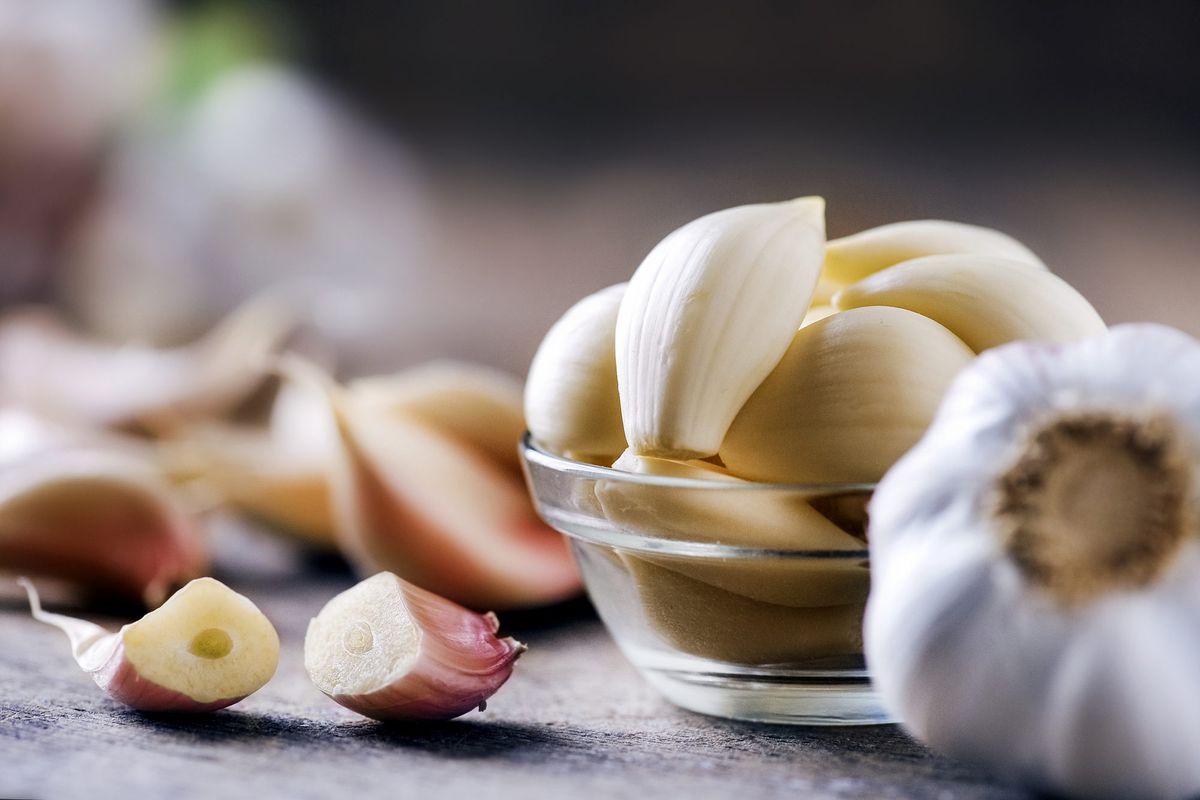Even in an era driven by science, medicine, and global communication, the myth of the cure-all still refuses to go away.
“A patient came into the ER recently concerned about a possible ear infection,” writes Dr. Michael Daignault in an article published by USA Today. “It was hard not to notice the yellowish white object wedged into the patient’s ear canal. A fresh garlic clove.”
It might sound absurd, but as it turns out, there is a historical precedent for garlic being used to treat infections. Granted, shoving a clove of garlic in your ear is still a bad idea. But this is one remedy that admittedly isn’t based on pseudoscience.
In fact, nearly every culture that has encountered the herb acknowledges its curative properties to some extent.
In Sanskrit, Daignault explains, the word for garlic is mahoushudh, or cure-all. In China, garlic was used to treat everything from respiratory infections to digestive disorders. In ancient Egypt, garlic was a common treatment for abscesses—where The Concord Monitor reports it was frequently invoked as divine.
Garlic appears in other histories and mythologies as well, according to The Monitor.
In Korea, it was one of the ingredients that transformed a bear into a human. In ancient Greece, athletes used it as a performance enhancer, while Roman soldiers ate it for courage and inspiration. Eastern European folklore viewed garlic as a tool for warding off evil, while Christian mythology claimed the devil’s left footprint created the first cloves.
It was also used frequently to treat infections during the bubonic plague.
The source of garlic’s curative properties was discovered in the late 19th century by Louis Pasteur. Garlic, it turns out, contains an active ingredient known as allicin. It’s a powerful antibiotic, particularly when concentrated. So with all this in mind, why is it a bad idea to put garlic in your ear?
For a few Reasons.

- Garlic cannot generally reach the site of infection and can actually trigger contact dermatitis or an allergic reaction.
- If garlic oil leaks into the inner ear, it can turn rancid, further worsening the infection.
- Modern antibiotic and antiviral treatments are concentrated versions of medicinal herbs such as garlic—meaning that they’re generally much more effective.
When incorporated into a balanced diet, garlic does have proven health benefits. As noted by Healthline, regular consumption of garlic can:
- Boost immune system functionality.
- Combat high blood pressure.
- Improve cholesterol.
- Potentially prevent Alzheimer’s and dementia.
- Improve athletic performance.
- Improve bone health.
So, to summarize, garlic does have curative and restorative properties. But it isn’t a cure-all. Instead of shoving a clove in your ear the next time you have an infection, use it to season your food. And for the love of everything scientific, please listen to your doctor.
About the Author:
Dr. Renee Flanagan is the Director of Audiological Care at Hearing Planet. She works with the training and development of Hearing Care staff so they may help the hearing impaired population by following best in class hearing healthcare practices.


:max_bytes(150000):strip_icc()/hypersexuality-f7219c0faf93488b82402d4f9d20e454.jpg)


